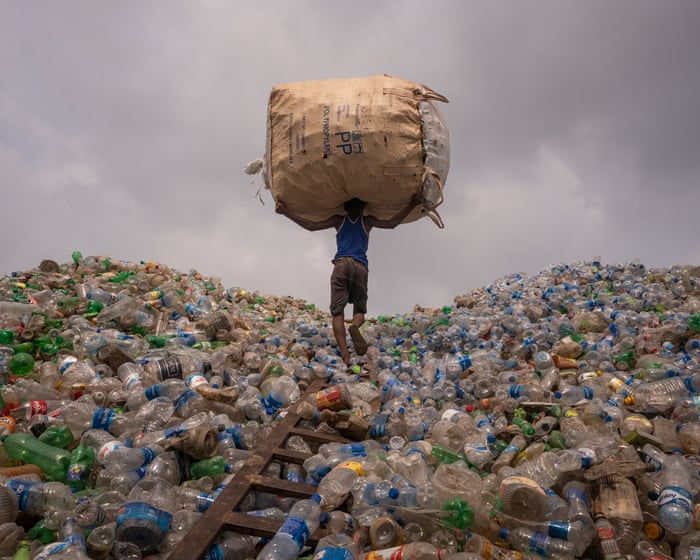Plastics pose a serious and growing threat to human health and the planet, according to a new expert review. The report warns we’re facing a “plastics crisis” that harms people from birth to old age and causes at least $1.5 trillion in health-related damages annually.
The problem stems from skyrocketing plastic production, which has grown over 200 times since 1950 and could nearly triple again by 2060 to exceed one billion tons per year. While plastic has valuable uses, the biggest surge has been in single-use items like drink bottles and fast-food packaging.
This has led to widespread pollution, with 8 billion tons of plastic now contaminating every corner of the Earth – from Mount Everest to ocean depths. Less than 10% gets recycled.
The review highlights how plastics endanger lives and ecosystems at every stage – from extracting fossil fuels for production to disposal. The consequences include toxic air pollution, chemical exposure, and microplastics entering our bodies. Even discarded plastic waste creates breeding grounds for disease-carrying mosquitoes by collecting rainwater.
Published in The Lancet medical journal, the report comes ahead of crucial UN negotiations for a global plastics treaty. Talks have stalled due to conflicts between over 100 nations supporting production limits and oil-producing countries like Saudi Arabia opposing them. Recent investigations revealed how oil states and plastic lobbyists are undermining the process.
Lead author Professor Philip Landrigan, a pediatrician at Boston College, stressed the urgent need for treaty measures protecting health: “The most vulnerable suffer most, especially children. These impacts carry enormous economic costs. We must act now.”
Oil-producing nations and plastic manufacturers advocate focusing on recycling rather than reducing production. But unlike materials like glass or aluminum, most plastics can’t be effectively recycled. The report states: “Recycling alone won’t solve this crisis.”
Over 98% of plastics derive from fossil fuels. Their energy-intensive production emits 2 billion tons of CO2 yearly – surpassing Russia’s total emissions. Plastic manufacturing also pollutes the air, while over half of unmanaged waste gets burned openly, worsening air quality.
Plastics contain over 16,000 chemicals, many linked to health risks throughout human life. The report underscores how these substances threaten wellbeing at every developmental stage.There was little transparency about the chemicals present in plastics. The study found that fetuses, infants, and young children are especially vulnerable to the harms of plastics, with exposure linked to higher risks of miscarriage, premature birth, stillbirth, birth defects, stunted lung growth, childhood cancer, and fertility issues later in life.
Plastic waste often breaks down into microplastics and nanoplastics, which enter the body through water, food, and air. These particles have been found in blood, brains, breast milk, placentas, semen, and bone marrow. While their full impact on human health is still unclear, they have been connected to strokes and heart attacks. Researchers recommend taking a precautionary approach.
Though plastic is often considered cheap, scientists argue it becomes costly when accounting for health damages. One estimate found that just three plastic chemicals—PBDE, BPA, and DEHP—cause $1.5 trillion in health damages annually across 38 countries.
This analysis is the first in a series of reports tracking plastic’s impact. Margaret Spring, a senior lawyer and co-author, said: “These reports will provide decision-makers worldwide with reliable, independent data to shape effective policies against plastic pollution at every level.”



